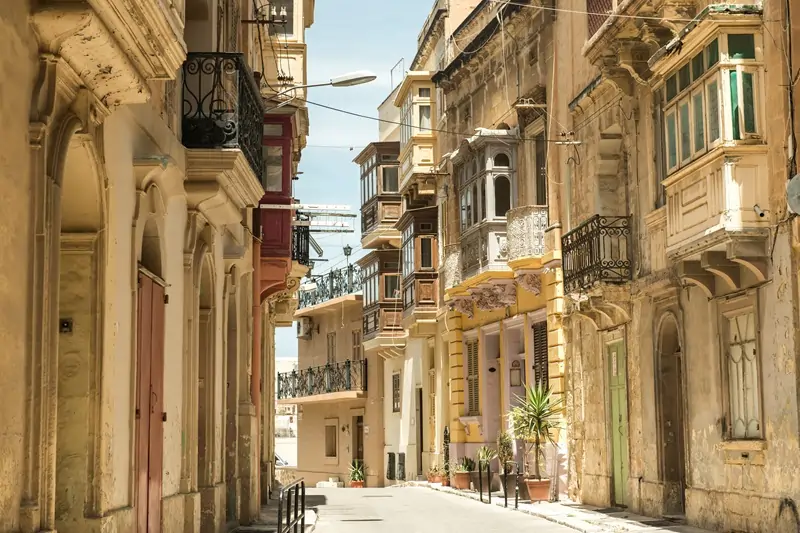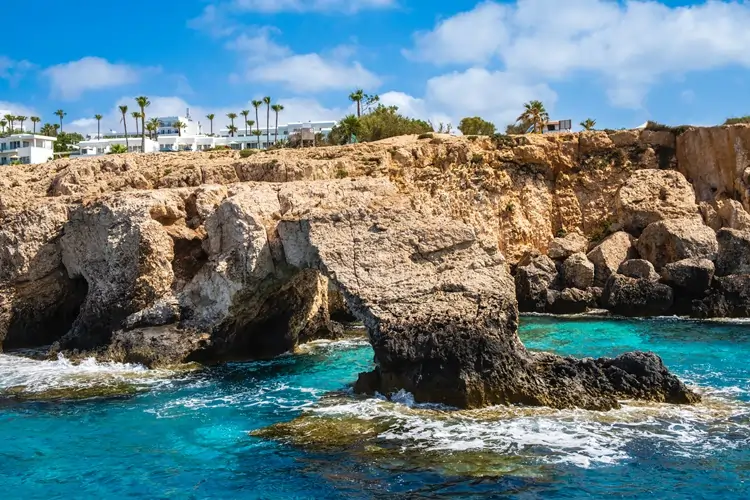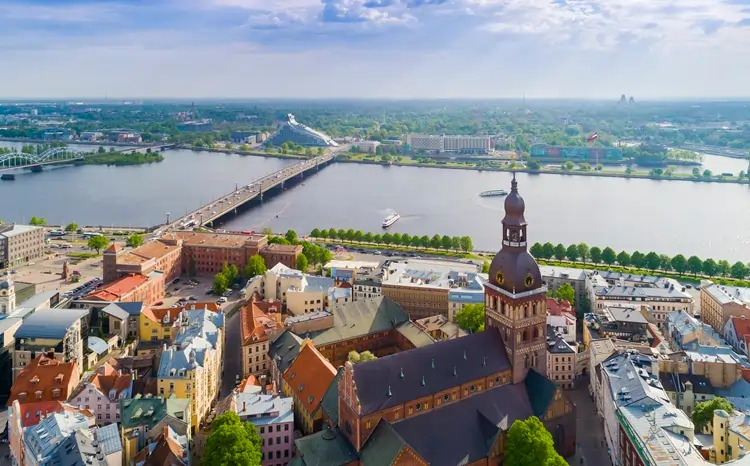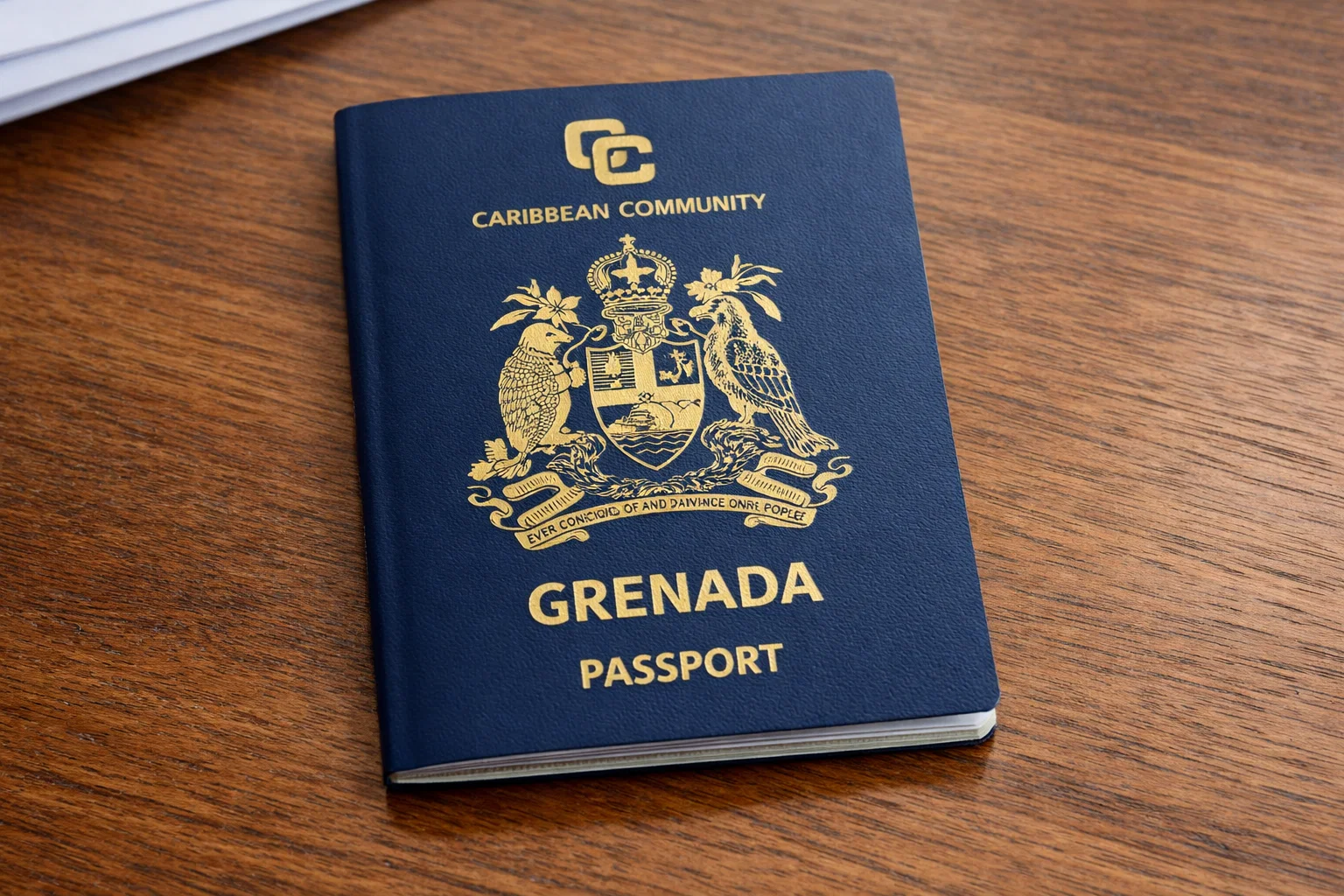The European Golden Visa landscape has shifted dramatically recently. What once revolved mainly around buying property and waiting out a few years has evolved into a far more complex and politically charged system. Today, legal rulings, housing market debates, and mounting pressure from Brussels have driven changes in the rules across the EU.
The European Court of Justice banned all citizenship-for-sale schemes, effectively ending Malta’s controversial “golden passport”. Spain followed suit by shutting down its Golden Visa program altogether, while Portugal scrapped its famous real estate route and shifted focus to fund investments, business creation, and cultural contributions.
Meanwhile, Greece has introduced a tiered property system with higher thresholds in prime areas, and Hungary has launched a brand-new Guest Investor Program. These reforms mark a clear trend: Golden Visa programs are no longer about simply buying your way into Europe; they’re about contributing to the economy in a meaningful way.
Understanding these changes is critical before you make any investment, whether you’re looking for residency options for your family, seeking mobility across the Schengen Area, or planning for long-term citizenship.
What Is the European Golden Visa?
A European Golden Visa is a residency-by-investment program that allows non-EU nationals to obtain legal residency in a European country by making a qualifying investment.
It’s important to note that a Golden Visa does not grant instant citizenship or a passport. Instead, it provides the right to live in the host country and eventually apply for permanent residency or citizenship after meeting certain stay and legal requirements.
Unlike the citizenship-by-investment programs (sometimes called “golden passports”) that were popular in countries like Malta, these have been banned by the European Court of Justice due to concerns over security and integrity.
Today, Golden Visas focus on attracting investors who want residency first, with citizenship being a long-term possibility rather than an immediate outcome.
Subsequently, why are Golden Visas appealing? They offer far more than just a residence permit. Holders gain a wide range of benefits that can improve their lifestyle, mobility, and future opportunities:
Golden Visas were once synonymous with buying real estate, but as seen in recent reforms, many countries now focus on productive investments like businesses, funds, and cultural projects rather than simply property purchases.
Who Applies for a Golden Visa and Why?
Golden Visa programs aren’t just for one type of investor; they appeal to a wide range of people with different goals. While each applicant’s circumstances vary, there are clear patterns in who seeks these programs and why:
- 🌍 High-net-worth individuals (HNWIs) from emerging markets:
Investors from regions with political or economic instability often seek residency in Europe for greater security, access to better healthcare, and world-class education for their children. A Golden Visa provides a safety net and global mobility in uncertain times. - 🇬🇧 Post-Brexit British citizens:
Before Brexit, UK nationals could freely live and work across the EU. Today, many Britons use Golden Visas to regain that lost mobility, securing residency rights in Europe without giving up their UK citizenship. - 🇺🇸 US and Hong Kong investors:
For Americans and Hong Kong residents, the motivation is often about lifestyle diversification and tax planning. They want a legal foothold in Europe for retirement, business relocation, or simply to enjoy a more flexible international lifestyle. - 💼 Entrepreneurs and global business owners:
Golden Visas make it easier to expand into EU markets, set up companies, and manage international teams. Many programs allow business creation as a qualifying route, attracting entrepreneurs looking for growth opportunities. - 👵 Retirees seeking quality of life:
Some applicants are retirees who want to enjoy Europe’s safety, culture, and healthcare systems without the hassle of long visa applications. Flexible stay requirements in countries like Portugal and Greece make this especially appealing.
Key motivators across all groups include
Tax flexibility, hassle-free Schengen travel, business opportunities, family security, and long-term access to European residency or citizenship.
Why Are Golden Visa Programs Changing in Europe?
The Golden Visa boom of the 2010s has given way to a more cautious and regulated era. By 2026, multiple factors have reshaped these programs, pushing governments to tighten rules and rethink their purpose.
EU Pressure & AML Concerns
The European Commission and the European Court of Justice have grown increasingly vocal about the risks of residency and citizenship-by-investment programs.
Concerns over money laundering, tax evasion, and security led the ECJ to ban all citizenship-for-sale schemes (like Malta’s golden passport). Brussels has also issued multiple warnings urging member states to strengthen due diligence and source-of-funds checks.
Key takeaway: EU pressure is forcing countries to move from easy property purchases toward productive investments and stricter vetting.
Housing & Politics
Spain and Portugal faced public backlash over housing affordability. Critics argue that real estate-based Golden Visas fuelled speculation and pushed locals out of urban centres. As a result:
- Spain abolished its Golden Visa program entirely in 2026.
- Portugal removed real estate from its scheme and shifted to business creation, cultural, and fund investments.
Greece, meanwhile, increased property thresholds in prime areas and added tiered pricing to address similar concerns.
Key takeaway: Programs are being redesigned to protect domestic housing markets and focus on economic contributions rather than speculation.
Scandals & Reputation Issues
Past controversies in Cyprus and Malta cast a shadow over these programs. Investigations revealed instances of corruption, abuse, and inadequate due diligence, prompting EU-wide scrutiny.
While Malta’s citizenship program was struck down, its permanent residency scheme remains, but under much tighter oversight.
Key takeaways: Governments now prioritise transparency, compliance, and reputational risk to maintain political legitimacy.
These examples highlight how dynamic the European Golden Visa landscape has become. Instead of static, one-size-fits-all schemes, each country is adapting its program to address domestic pressures and EU-level scrutiny.
For investors, this means it’s more important than ever to stay updated and work with professionals who track legal and policy changes closely.
Which Programs Have Closed or Changed Recently?
The EU Golden Visas landscape has undergone major shifts over the past few years.
Below is a quick snapshot of the most significant program closures and reforms investors should be aware of:
With reforms happening almost yearly, staying updated on program changes is key to making the right investment decision.
Active Golden Visa Programs in 2026
Although some high-profile programs have closed, several European countries still offer active Golden Visa or residency-by-investment options. Here’s a quick snapshot comparing the main routes side by side:
Spain’s program has closed. The following countries remain open and provide alternatives.
These active programs highlight how Europe’s residency-by-investment landscape is shifting toward more selective and productive investments. While the minimum amounts and rules may vary, they all share stricter oversight and a stronger focus on economic contribution.
If you’re considering one of these routes, it’s essential to compare more than just the cost and evaluate stay obligations, family eligibility, and long-term citizenship pathways before making a decision.
Which Are the Best European Golden Visa Programs?
Before diving into the details of each program, it helps to know which European countries still offer Golden Visa options. Despite the discontinuation of popular schemes such as Spain, investors and their families can still access several attractive pathways.
Here are the most notable active programs in Europe today:
Portugal’s Golden Visa program has shifted sharply toward socially responsible investing. As of 2026, property purchases are no longer eligible. Instead, investors must commit at least €500,000 to qualifying investment funds (which must avoid real estate allocation), invest in scientific research, start a business that creates jobs, or contribute €250,000 to cultural or heritage projects.
A planned “solidarity visa”, aimed at funding affordable housing and migrant accommodation, may offer a lower-cost alternative in the near future.
On the residency side, Portugal still delivers strong access to Schengen travel with just seven days a year required. However, the processing times have ballooned; some applicants are now waiting up to 39.6 months due to major backlogs from SEF’s transition to AIMA.
Italy’s Investor Visa (IV4I) offers residency via four qualifying routes:
- €2m in Italian government bonds
- €500k in an Italian company
- €250k in an innovative startup
- €1m philanthropic donation (real estate purchases don’t qualify).
Applications start with an online Nulla Osta (pre-clearance) and are handled by the Investor Visa Committee; once approved, you apply for the visa at the consulate. Family can accompany under family-reunification rules.
Timelines are typically ~3–6 months end-to-end (Nulla Osta ~30 days, then consular processing), after which you convert to a residence permit (2 years, renewable 3) provided the investment is maintained.
Long-term pathways follow standard Italian rules: EU long-term residence after ~5 years of continuous legal stay and citizenship after ~10 years of residence.
Separately, Italy’s “new resident” flat-tax regime, often paired with IV4I, now charges €200k/year on foreign income for newcomers (up from €100k), extendable to family for €25k each, available for up to 15 years.
Greece’s Golden Visa remains one of Europe’s most accessible programs, offering residency through real estate investments starting at €250,000, primarily for heritage renovations or commercial-to-residential conversions.
As of September 2024, new tiered thresholds were introduced: €400,000 for most regions and €800,000 for high-demand areas like Athens, Thessaloniki, Mykonos, and Santorini. These changes aim to balance investor interest with local market concerns while still maintaining pathways at lower price points.
Investors receive a five-year renewable residence permit with no set stay requirements, a strong appeal for digital nomads and frequent travellers. The program covers not just spouses and children under 21, but also dependent parents.
While delayed processing has created a backlog, the route remains straightforward. Holders can apply for Greek citizenship after seven years of residency and fulfilment of language and tax requirements.
Hungary relaunched its "Golden Visa" as the Guest Investor Residence Permit, issuing a residence card for up to 10 years (with a guest investor visa for 6 months to enter and finalise the investment).
As of late 2025/2026, two qualifying routes remain:
- €250,000 into a designated real estate investment fund
- A €1,000,000 non-refundable donation to a public trust supporting higher education/research.
The previously announced €500,000 direct residential property route was dropped via amendments published in December 2024.
The permit covers immediate family (spouse and dependent children), offers Schengen mobility, and has no specific stay requirement beyond maintaining the investment for the required period.
Naturalisation follows Hungary’s standard rules (generally eight years of residence with language/civics requirements), so the program is best viewed as a long-term residency pathway rather than a fast track to citizenship. Processing timelines vary as the scheme beds in.
Malta’s Permanent Residence Programme (MPRP) offers a structured and streamlined route to EU residency for non-EU nationals through a combination of property investment, government contribution, and a charitable donation.
Applicants must demonstrate:
- Assets of at least €500,000 (with €150,000 in financial assets)
- €650,000 (including €75,000 in financial assets) is required for eligibility.
For property, you can either purchase residential real estate valued at €375,000 or lease one for €14,000 per year for five years. Additional costs include a government contribution of €37,000, an administrative fee of €60,000, and a charitable donation of €2,000.
The application process takes about 6–12 months, depending on due diligence. Once your application is approved, you will receive a five-year residence permit that can be renewed indefinitely under the same conditions.
This residency includes visa-free access to the Schengen Area (90 days within a 180-day period) and covers immediate family members, including spouses, dependent children, and parents.
After five years, PR holders may apply for Maltese citizenship, provided they meet all standard legal requirements. While the program no longer provides direct access to a passport, it remains a reputable option due to Malta’s location, quality of life, and EU membership.
The Cyprus golden visa offers one of the most straightforward and affordable paths to permanent EU residency. As of 2026, non-EU investors can qualify by investing at least €300,000 in real estate, certain business entities, or regulated investment fund units.
Applicants must also demonstrate an annual income of around €50,000, with additional sums required for spouses and dependent children. Residency status is granted immediately upon approval, but maintaining it requires visiting Cyprus at least once every two years. The process is streamlined, generally taking 2–9 months from start to finish depending on the complexity of the application.
The residency extends to spouses, dependent children, and student children up to age 25. It grants full access to healthcare and education, though it does not allow work rights, aside from serving in a company you’ve invested in.
After seven to eight years of legal residence (with slightly reduced duration for professionals), applicants become eligible for Cypriot citizenship through naturalisation, assuming they meet all integration and legal criteria.
This makes Cyprus a compelling option for those seeking a low-barrier entry into EU residency with a clear and achievable citizenship pathway.
Latvia’s residence-by-investment scheme remains one of the EU’s most flexible, with four main routes:
- Real estate from €250,000 plus a 5% state fee
- €280,000 five-year subordinated bank deposit with a €25,000 fee
- Government bonds for €250,000 issued for a special purpose
- Share-capital investment from €50,000 in a Latvian company (capped at 10 foreign investors per company and requiring a €10,000 payment to the state budget).
These options are confirmed across the Latvian migration authority’s pages and leading program trackers.
Successful applicants receive a temporary residence permit valid for up to five years (ID card renewed annually), may include spouses and minor children, and typically see processing in 1–3 months with standard/accelerated/urgent service levels available.
Long-term pathways follow national rules: permanent residence after ~5 years of residence and citizenship around 10 years. Note that additional restrictions apply to Russian and Belarusian nationals under Latvia’s post-2022 measures.
Benefits: What Do You Get With a European Golden Visa?
All Golden Visa programs offer core advantages like residency rights, Schengen travel access, and the ability to include family members.
However, the details differ between countries, so it helps to compare them side by side.
Here’s a quick snapshot of how the main programs stack up on essential benefits:
How to Apply for a European Golden Visa (Step-by-Step)
While each country’s process varies slightly, the overall application steps are quite similar across Europe. Below is a straightforward breakdown of the typical process:
- Choose your program and investment route – Research the countries that match your goals and select the qualifying route (e.g., real estate, funds, business creation).
- Gather all required documents – these usually include your passport, a clean criminal record (police clearance), proof of funds, and relevant health insurance or accommodation documents.
- Make the qualifying investment – Purchase the property, subscribe to the fund, or complete the approved investment route per your chosen program’s rules.
- Submit your application and provide biometrics – File your application with the relevant immigration authority and attend any required biometrics appointment.
- Pay government fees and legal costs – Cover the application and due diligence fees; some programs also have mandatory donation or contribution components.
- Receive your residence permit – Upon approval, you’ll be issued a residence card, typically valid for 1–5 years depending on the program.
Important caution: Golden Visa applications are subject to strict anti-money laundering (AML) checks.
Authorities carefully examine the source of funds and require detailed documentation for transparency. Failing to provide legitimate, verifiable records can delay or derail your application.
The Real Cost of a European Golden Visa
When people hear the term “Golden Visa”, they often think only about the minimum investment amounts.
In reality, the true cost of obtaining and maintaining residency includes more than just the qualifying investment.
Breaking it down into categories helps paint the full picture for investors.
Application & Processing Costs (Beyond Investment)
Here’s a comparison of the main application-related costs:
(Figures are indicative; they vary depending on family size and chosen legal advisors.)
Additional or Hidden Costs
Beyond government and legal fees, investors should budget for:
- Mandatory donations/contributions (e.g., Malta and Portugal cultural routes)
- Property taxes, stamp duties, and notary fees are applicable when purchasing real estate.
- Translation and apostille/legalisation of documents
- Travel expenses for biometrics and interviews
- Tax planning and accounting support is particularly important if you establish tax residency.
Tax & Residency Considerations
Many assume a Golden Visa automatically makes you a tax resident; it doesn’t. Residency permits and tax residency are separate. Most countries obey the 183-day rule or similar tests: you’re taxed there only if you spend over half the year or have your main economic and personal ties in that country. Simply holding a Golden Visa while living elsewhere typically does not trigger tax residency.
For those who do relocate, some countries offer special tax regimes aimed at attracting investors. Italy has a flat annual tax on foreign income, Greece offers lump-sum and 7% retiree programs, and Malta and Cyprus tax on a remittance basis. Knowing these rules helps you plan legally and avoid surprises.
As shown above, tax treatment varies widely. The right approach depends on your circumstances, where you live, and how you structure your finances. Always seek professional advice to optimise your situation and avoid double taxation.
How to Choose the Right European Golden Visa Program?
The best Golden Visa isn’t the same for everyone. Before deciding, weigh these key factors to find the program that aligns with your goals:
Choosing the right program means balancing your priorities (family relocation, retirement, business expansion, or a backup residency plan) with these criteria.
Consulting with an immigration professional can help you tailor your choice and avoid costly mistakes.
Risks, Backlogs, and Political Outlook
No Golden Visa program is without challenges. Being upfront about the risks helps you make informed decisions and plan realistically.
Backlog and Processing Delays
Some countries have significant waiting times that don’t always match their advertised timelines.
For example, Portugal’s program faces severe backlogs due to the transition from SEF to AIMA, with approvals often taking well over a year.
Greece has also seen delays in high-demand areas like Athens and Thessaloniki, where the influx of applications has stretched local authorities.
Legal and Policy Risks
Golden Visa rules can change midstream. Portugal’s ongoing debate over extending citizenship eligibility from 5 to 10 years is a key example; while it is not finalised, it shows how political pressure can affect timelines.
Similarly, reforms in other countries have phased out or tightened certain investment routes (like property bans in Portugal and tiered pricing in Greece).
EU Scrutiny and AML Compliance
The European Commission continues to scrutinise residency-by-investment schemes, especially those around anti-money laundering (AML) and due diligence standards. Expect stricter vetting, more source-of-funds documentation, and possible EU-wide recommendations for transparency.
This doesn’t mean Golden Visas are ending, but programs are shifting toward productive investments and tighter oversight rather than easy property purchases.
Being aware of these risks helps you plan for contingencies: work with reputable legal counsel, keep timelines flexible, and monitor legal developments in your chosen country.
Movingto: Helping You Navigate the New Era of Golden Visas
European Golden Visas have shifted from simple property buys to productive investments like funds, businesses, and cultural contributions. Along with these opportunities come stricter oversight, longer backlogs in countries like Portugal and Greece, and ongoing EU scrutiny over citizenship timelines and AML compliance.
At Movingto, we help you navigate this new landscape with independent guidance and vetted legal partners. Our team provides honest advice on programs, tax implications, and the full application process, so you can make confident decisions that fit your goals.
With a presence in Portugal, Spain, and Italy, our experts are close to the action and stay on top of every legal and policy change. Whether you’re a family, entrepreneur, retiree, or looking for a flexible Plan B, we’ll guide you through every step.
 Portugal
Portugal
 Spain
Spain Italy
Italy Greece
Greece Grenada Citizenship by Investment
Grenada Citizenship by Investment












.svg)